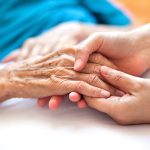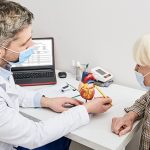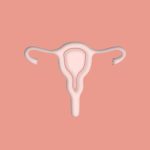-
March 24: The Week in Cancer News
Drug shortage affects patients with advanced prostate cancer, and military pilots and ground crews have increased cancer rates.
by Marci A. Landsmann
-
March 17: The Week in Cancer News
Active monitoring a viable choice for some with prostate cancer, and cancer’s effects on women’s sexual activity not addressed by providers.
by Kevin McLaughlin
-
March 10: The Week in Cancer News
The FDA sets rule that requires mammography providers to notify women who have dense breasts, and the ‘Jimmy Carter effect’ on immunotherapy treatment.
by Eric Fitzsimmons
-
March 3: The Week in Cancer News
Exercising only 11 minutes per day can reduce your cancer risk, and new robotic technology helps detect early-stage lung cancer.
by Thomas Celona
-
February 24: The Week in Cancer News
Aggressive end-of-life measures are common in people with advanced cancer in nursing homes, and findings suggest immune checkpoint inhibitors could one day be the preferred treatment in localized cancer.
by Marci A. Landsmann
-
February 17: The Week in Cancer News
More older women with breast cancer may not need radiation therapy, and supply shortages hinder bladder cancer treatment.
by Kevin McLaughlin
-
February 10: The Week in Cancer News
Patients who receive certain forms of chemo face long-term risk for heart failure, and screening levels for certain cancers remain below expectations.
by Thomas Celona
-
February 3: The Week in Cancer News
Group says more women should consider removing fallopian tubes to lower ovarian cancer risk, and treatment guidelines can lead to arbitrary age cutoffs.
by Eric Fitzsimmons
-
January 27: The Week in Cancer News
Many women underestimate dense breast effect on cancer risk, and FDA approves targeted therapy for colorectal cancer.
by Kevin McLaughlin
-
January 20: The Week in Cancer News
Women experience faster decline in physical function after cancer, and treatment quality for lung cancer varies across the US.
by Marci A. Landsmann
Cancer Talk
Treatment Combination Improves Survival in EGFR-positive Lung Cancer
Adding chemotherapy to targeted therapy improves outcomes for people with advanced EGFR-positive non-small cell lung cancer.
by Sandra Gordon
Lessons From 20 Years Living With CancerMultiple myeloma survivor Jonathan Gluck reflects on uncertainty, and the scientific progress that has kept him living with cancer for more than two decades.
by Eric Fitzsimmons
The Enduring Importance of Cancer Disparities ResearchOpening session from AACR conference highlights how perseverance and adversity have informed cancer disparities research over the years.
by Eric Fitzsimmons
Most Cancer Survivors Don’t Meet Healthy Diet GoalsDespite research linking fruits and vegetables to cancer survival, many people do not change their eating habits after diagnosis.
by Darlene Dobkowski














